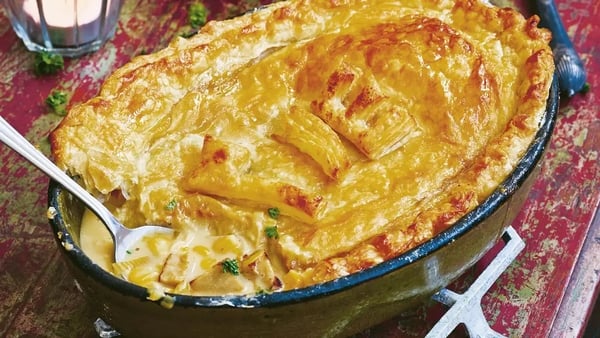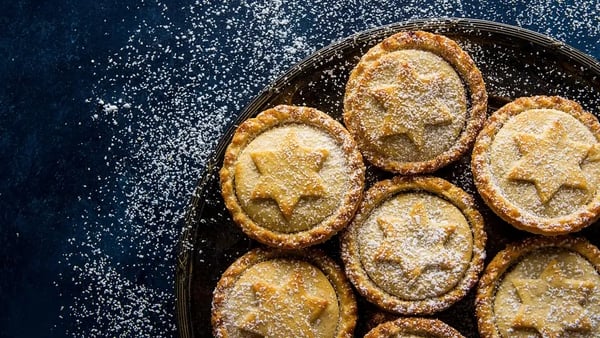Imported dolls, cheap plastic replicas of cartoon characters, and PVC figurines are now passé, and for good reason. Closer home, there is a silent community of sustainable doll makers crafting everything from cloth dolls, to religious figurines. Not only are they long-lasting and crafted from upcycled fabric, these dolls promote body positivity and are more in-line with India’s cultural diversity. We bring you the stories of a few of India’s doll makers.

Miniature dolls crafted at Maaya Crafts | Photo Credit: Special Arrangement
Miniature dolls @ Maaya Crafts, Coimbatore
For dentist-turned-artist Vidya Prakash, crafting dolls is a way to reconnect with her childhood. During her stint in the US post-marriage, Vidya says she missed home. “I embraced my loneliness by narrating those memories to my then five-year-old daughter, Maaya, at bedtime.” she says. One day, Maaya asked if Vidya could help craft a miniature bakery for the mini cakes and cupcakes she had made. “She was too young to use a knife, and when I helped her to make the bakery stand, I realised I was able to do it with ease and I was a natural.”

Vidya Prakash | Photo Credit: Special Arrangement
Soon, Vidya, 41, started making miniature artefacts such as guava vendors, temple cars, tea shops, etc. to illustrate stories. “When my collection grew and my display shelf was full, I planned to sell them online, and that’s how my brand, Maaya Crafts, was born,” says Vidya who now lives in Coimbatore and donates all proceeds from her sales to Government schools in Tamil Nadu’s Krishnagiri and Dharmapuri districts.
“The brand is not just about the dolls, but scenes from my memory of my childhood,” explains the artist. “I craft miniature deities and human figurines in a variety of themes such as Varalakshmi pooja, Ganesh Chaturthi, Kathakali and Yakshagana dancers, vendors selling vegetables, and a mother making dosas,” she says, adding that the bestsellers from the brand are the Onam girl, bajji kadai and Varalakshmi pooja sets.

Creations at Maaya Crafts | Photo Credit: Special Arrangement
Vidya says she uses quilling paper to make figurines, polymer clay to make food items and wooden sheets to make carts, tables, and other accessories. “To make a figurine I roll quilling strips into different body parts and glue them together before adding clothes and accessories. I draw eyes, lips, a bindi with acrylic paint and finally varnish them with glue. I can craft two dolls in a day,” explains Vidya, who recently finished a miniature Thiruvarur temple car replica.
₹1,000 for a human figurine, and ₹2,000 for deities. @maayacrafts on Instagram

Creations at The Good Doll | Photo Credit: Special Arrangement
Hanimals @ The Good Doll, Tamil Nadu
In 2017, Suhas Ramegowda and his wife Sunita Suhas quit their corporate jobs and moved to the Nilgiris with their then 10-year-old son. “We decided to wrap up our lives from the cities and move to the mountains to live an off-the-grid life along with our son who was being unschooled,” says Suhas, 42, adding that they went on to discover local communities in the Nilgiris. “While we considered our life blissful, the communities around us saw it as a burden due to the lack of livelihood opportunities.” In an attempt to change this, the duo went on to create non-profit Indian Yards Foundation in 2019, which does the upskilling and capacity building for The Good Gift, a for-profit company founded two years ago.

Dolls are crafted from upcycled cotton fabric, and filled with poly fibre from recycled PET bottles | Photo Credit: Special Arrangement
Suhas explains how they experimented with different productssuch as patchwork quilts, face masks, macrame decor etc.,before “hitting a product-market fit about a year ago with fabric dolls”. These dolls are now known as the ‘good doll’ as they come from The Good Gift.
Crafted from cotton fabric that is upcycled from pre-consumer textile waste, and filled with poly fibre from recycled PET bottles, these dolls have two main categories: humans and hanimals. “The humans come in three sizes (12”, 9” and 7”), while the hanimals (animals with human features) are a standard 12”,” explains Suhas, adding, “The latter is extremely popular among children and adults alike because it is whimsical. They are body positive, colour inclusive and come with garments that represent cultural or regional characteristics. Each of our dolls come wearing a thoughtfully designed garment which is changeable,” he says. The 12” sari doll, Simba the lion, and 9” Rema are bestsellers.
The doll collector
The enterprise employs over 70-plus women who craft 3,500 dolls every month. “We have divided them into teams that make different parts of the dolls: body, hair attachments by hand, hand embroidery for face features and then the garments. This helps improve productivity and hence, their incomes,” adds Suhas.

A selection of dolls from Neha Parekh’s collection | Photo Credit: Special Arrangement
The process always starts with receiving the batch of fabric bundles from factories. “The design team then puts the design and fabric together. Once cut, the material is then sent to the producers for stitching. The bodies and garments start production simultaneously while hair attachments and face embroidery are subsequent steps to body stitching. Once all parts are done, the assembling team puts together the dolls with their respective garments,” he says, adding that they are now working on a new range of hanimals to encourage pretend play in children, along with limited-edition collectibles themed on India’s indigenous communities.
Upwards of ₹500 on thegooddoll.in/
Doll houses @ Tara Doll House, Bengaluru
Two years ago, Veena Peter was on a unique mission: to hunt down dolls with long hair for her then 2.5-year-old daughter, Tara. “This was mainly to fulfill Tara’s obsession with my hair! Unfortunately, the only long-haired dolls I could find would end up with tangled hair within a day. And not to mention the headless and limbless dolls lying around,” says Veena, whose search for durable long haired dolls ended in a dead end. Soon, the young mother started making the dolls herself.

Veena Peter | Photo Credit: Special Arrangement
After Veena made the first doll with wavy woollen hair and dressed in a colourful frock, Tara took it immediately. “I then made a few dolls for friends that were well-received. I decided to test the market for dolls, and enrolled in a pop-up in January 2023, and it was sold out before the event was over,” says the 38-year-old who formally started Tara Doll House after the event. “I took almost a year to research on size, shape and materials. We are completely sustainable and zero-waste. All our excess fabric gets converted into hair accessories or goes into stuffing the beds of the dolls,” says Veena who designs in three sizes: 7, 12 and 14 inches and can craft three dolls in a day. “The 7” dolls fit into a sling bag (that can be carried by the child) with a pocket designed like a frock to hold the doll, the 12” ones have a portable wardrobe in the form of a small briefcase, and the 14” dolls are cuddly and come with baby carriers,” says the artist, who also customises children’s clothing to match their doll’s outfit.

Veena Peter customises children’s clothing to match their doll’s outfit | Photo Credit: Special Arrangement
The catalogue at Tara Doll House comprises mermaids that convert to regular dolls with legs, multi-coloured hair dolls, etc. Each doll’s hair is tangle-free and can be customised to any length, and each playmate comes with a free outfit. Along the way, Veena realised that children also take their favourite dolls while they travel, and came up with the idea to design doll houses (₹2,000-₹3,000) in small wooden carry cases. “These are one of our bestsellers,” says Veena, “They are small portable boxes that come as a completely equipped wardrobe or bedding set, complete with a bed, blanket, pyjamas, and an eye mask.”
And these dolls are not limited to children. Veena has also taken orders for bride and groom dolls in ethnic attire that serve as wedding return gifts. “People usually think dolls are for kids, but they are an excellent return gift option for weddings, birthday parties, and corporate events,” concludes Veena.
Upwards of ₹300. @taras.dollhouse on Instagram

Kaja Divya Tejaswi | Photo Credit: Special Arrangement
Doll displays @ Lalitha Dolls, Bengaluru
During the pandemic years, Kaja Divya Tejaswi found herself out of a job. A school teacher, she was determined to explore something new to support her family, as her husband was also temporarily out of work. “My mother Lalitha was passionate about dressing dolls with beads and stitching frocks for them. Although she didn’t receive recognition for her talent during her time, I believe I inherited her creativity. Inspired by her, I decided to try my hand at doll makeovers and kickstarted a brand in her name,” says Divya, 33, who has 300-plus themes to her credit including baby showers, weddings, and housewarming ceremonies etc.
Varied fabrics such as Benarasi silk, cotton, velvet, brocade, net embroidery are used to craft the dolls, which are embellished with kundan stones, wool, non-precious stones, etc. “The dolls take anywhere between an hour to six hours to complete,” says Divya, of her six-women team.

Dolls crafted at Lalitha Dolls | Photo Credit: Special Arrangement
The challenging part is draping saris, adding jewellery, and hair styling, says the artist whose popular offerings include baby shower and housewarming sets. However, the most challenging project till date was to create the Ramayana and Mahabharata-themed displays. “Popular during Dusshera and Sankranti, the dolls depict scenes and characters from the great Indian epics. This often requires us to craft ancient-looking jewellery for kings and queens to maintain authenticity,” says Divya.
Many temples in the South also display these dolls to create educational and inspirational displays, adds the designer who is now focussed on designing Arangetram doll sets. “These are ideal for commemorating the significant milestone of a dancer’s debut performance. Each set is crafted to capture the elegance and grace of this classical dance form,” she concludes.
₹200 to ₹25,000 on lalithadolls.co.in/
Published - October 15, 2024 12:06 pm IST



